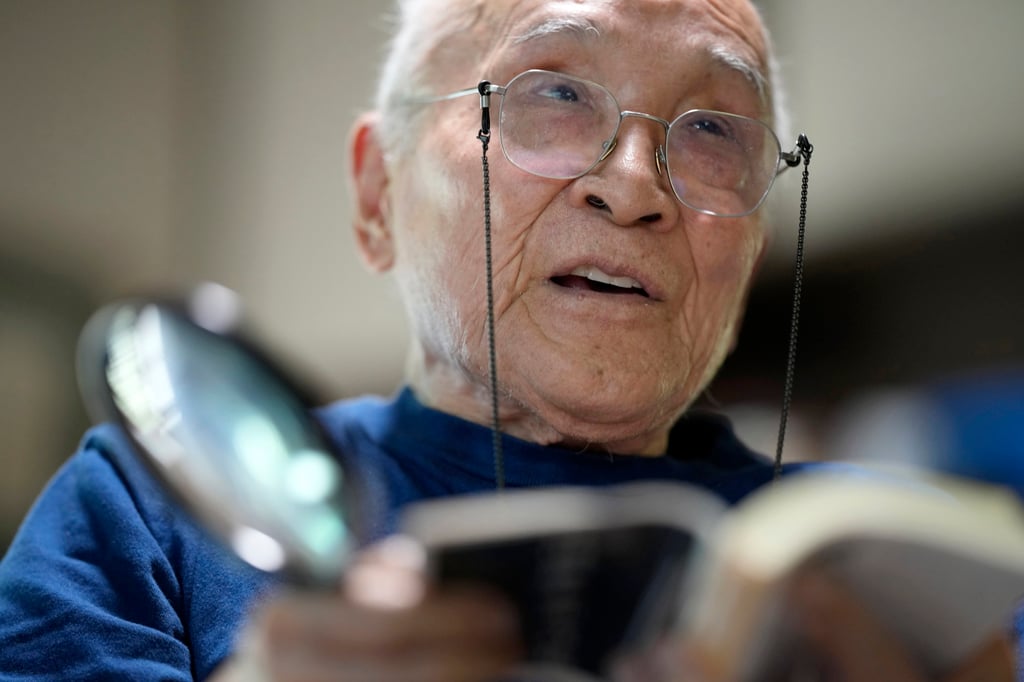He translated Peanuts, wrote lyrics to Astro Boy and is compared to T.S. Eliot – Japanese poetry legend Shuntaro Tanikawa
- Now 90, Shuntaro Tanikawa became famous for his poems on everyday life and has written over 100 books, but has also branched out into other areas
- Married and divorced three times, he swears he doesn’t have ‘projects’ any more, but he is currently working on a collaboration with his musician son

Shuntaro Tanikawa used to think poems descended like an inspiration from the heavens. As he grew older – he is now 90 – Tanikawa sees poems as welling up from the ground.
The poems still come to him, a word or fragments of lines, as he wakes up in the morning. What inspires the words comes from outside. The poetry comes from deep within.
“Writing poetry has become really fun these days,” he says in his elegant home in the Tokyo suburbs.
Shelves are overflowing with books. His collection of ancient bronze animal figurines stands in neat rows in a glass box next to stacks of his favourite classical music CDs.
“In the past, there was something about its being a job, being commissioned. Now, I can write as I want,” he says.

Tanikawa is among Japan’s most famous modern poets, and a master of free verse on the everyday.